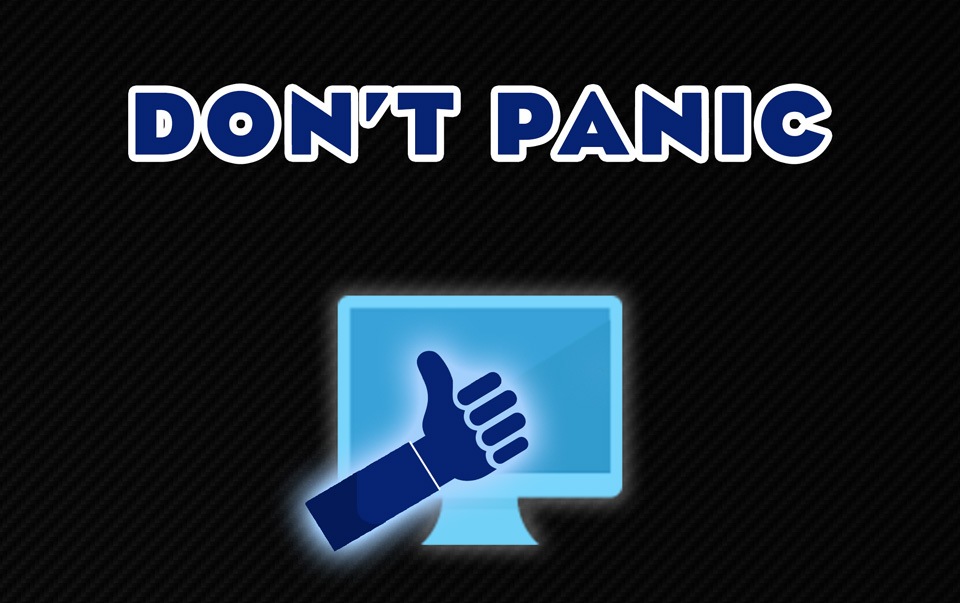“How Can I Be First On Google?”
Every business recognizes the benefit of search engine ranking. Being the first link is the best endorsement that the world’s largest search engine could give your business. However, what about your business is being endorsed? How does Google know about your business? How does Google decide which sites to show first in search results? What are things you can do to improve your ranking?
Key Concepts To Know
How does Google know about your site?
This is validation of the existence of content. This is called indexing.

Indexing
Google has crawlers that follow links on websites to other websites.
When a crawler arrives on your site, it sends what it finds back to Google, where the information is included in their index. At this point, Google is now “aware” of the existence of your site, as well as the content (words and media) on it. This gives their algorithm enough information to begin to categorize your site in terms of topical relevance, or by search terms for which they think your site should be given as a result.
How does Google decide which sites to display first?
This decision is a valuation of content. This is called ranking.

Ranking
Google has a secret algorithm of more than 200 questions that they use to determine the relevance of a website’s content to the search term(s) that a Google user typed into their search bar. This is based on the quality of content. Obviously, your local storage units have nothing to do with your neighborhood grocer, and Google’s algorithm is smart enough to know the difference when a user searches for “store”. Furthermore, this algorithm constantly being updated.
However, ranking is also determined by popularity. Popularity is measured by how many unique referrals a website receives, as well as the ranking of those referrals. A “referral” is a visitor on another website clicks a link to go to your website.
What are some things you can do to improve your ranking?
This is what I hope to help you with in this article. The short answer is, produce good original content. You wouldn’t be very happy if you search Google.com for directions to the grocery store, but it gave you links to local dry goods storage facilities. Google is smart enough to know the difference. In order to be found for search terms that we want to be found for, we need to write content (good, relevant information) about those very topics. It also helps to target specific keywords in your content.
According to MOZ,
Keywords are ideas and topics that define what your content is about. In terms of SEO, they’re the words and phrases that searchers enter into search engines, also called “search queries.” If you boil everything on your page — all the images, video, copy, etc. — down to a simple words and phrases, those are your primary keywords.

Recognizing the Importance of the Search
It is not enough to know that someone is searching for the products, services, or information on your website. It is helpful to also know how people are searching. Did you know that search engines accept complete sentences as search terms, including open questions? It turns out that the specific words and colloquialisms (keywords), typed into the search bar will affect what appears in the search results. Whether you are a loan officer specializing in refinancing, or a frozen yogurt shop with special organic options, being specific in the way your website content is written is important if you hope to be found for related searches.

Quick Hacks Don’t Usually Work
A few years ago, including “meta keywords” was seen as a good way to get search engines to recognize a web page as relevant to desired search terms. Fortunately, this hack of a shortcut is no longer used by search engine indexing algorithms.
Why is this good? Untrustworthy websites were stuffing meta keywords on their pages to artificially rank highly in search results. The content was neither as useful nor as helpful as the meta keywords promised. Not only does this not help serve the person who initiated the search, but it makes the search engine look bad for delivering content that isn’t relevant.
Smarter algorithms help search engine users get to what they were searching for more efficiently. This is a win-win! Pages with the best genuine content are recognized and recommended to users who are searching for content related to their search terms.

Slow And Steady Wins The Race
If you have read this far, you may already recognize the truth of an old adage of the web:
“Content is King.”
Since including meta keywords doesn’t work, and since algorithms are designed to deliver the best content first, the best way to win the search results battle is to actually create good content.
Good content is helpful. Good content is useful. Good content is personal. The best content is all of the above, with the added bonus of being “evergreen”. Evergreen content is excellent content that is always in season. It collects more views over time, rather than dropping off, as most content does, in the diverse web of an ever mounting sea of information.

Patient Persistence Pays Off
It Can Take From Four Months to One Year To See Results. The fact that it takes significantly more time to see results than it takes for your site (and its content) to be indexed is a sign that it is not enough to simply have good content. It is also necessary to continually add new content. This gives rise to another old catchphrase for the web:
“Google loves blogs.”

Blogging as a Strategy for SEO
A blog (short for web log) is a digital means of writing short articles to be published to the web on a website. Since blogs live on the web, they are able to be indexed by search engines, and are therefore useful for increasing relevance for desirable search terms.
By now, you probably have a good grasp of the Search, the algorithm, and how your website fits into this structure. Since you have this basic understanding, you now probably also recognize the power of a blog to help drive search results to your website. At Benchmark Corporate, your Media Team syndicates general blog content to your website (plural, if your branch has a branch website). Your site is not stagnant, though it is probably not performing at peak level.
This is where you come in.

Don’t Panic!
If you feel pressed for time to write new content every day, don’t panic! Consistency is more important than frequency. It is not as important to write often as it is to write on a regular schedule.
If your income stream does not come directly through visits to your blog, frequent blogging is not the end goal. The end goal is to regularly create meaningful content that resonates with the collective thoughts and questions of your target audience so as to be found when they curiously or hopefully type those thoughts or questions into the search bar of their favorite search engine.
Try setting a goal of writing once a month, just to get your feet wet. You can increase your frequency later. If writing articles on a regular, if infrequent, basis is not something you are currently comfortable or familiar with, don’t worry. The more you do it, the better you will become at writing.

You Can Do It!
Have you ever shared what you do for a living at a party or get-together and been asked your company’s opinion on something? It is far more likely that they are more likely interested in what you personally have to say. They want to hear your perspective, opinion, and reasoning. Naturally, a packaged answer from someone else isn’t going to have the same power or impact as one made from your own mind—wisdom and insight drawn from your own experience. There is simply nothing else that can stand in your place.
The Data Doesn’t Lie
Blog articles authored by the name on the website, not from a hired content creator, almost always outperform content produced by someone else. Your writing style is a reflection of your personality, intentional or not. When a web visitor knows what to expect if they choose to do business with you, they will be more comfortable doing just that. Honestly, aren’t we all this way? Your past clients are also more likely to share articles that sound like you, especially if they have already referred new business to you before.
This leads us to the final, yet very brief, takeaway from SEO and marketing guru Neil Patel,
[bctt tweet=”SEO copywriting is all about creating useful, compelling and valuable content that targets specific keywords so that other people will gladly promote it on social media platforms. – Neil Patel” via=”neilpatel”]


